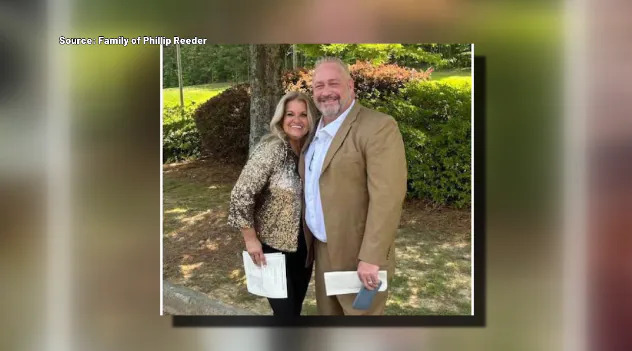Alabama Family Demands Justice After 52-Year-Old Man Dies in Police Custody
MONTGOMERY, AL — A grieving Alabama family is demanding answers and accountability after the sudden and tragic death of a 52-year-old man who died while being detained by police. The incident, which has sparked outrage, suspicion, and calls for an independent investigation, is the latest in a string of controversial in-custody deaths that have shaken public trust in law enforcement procedures across the country.
According to initial reports, the man — whose name has not been publicly released by authorities pending official review — was taken into police custody earlier this month during what was described as a “routine encounter” with officers in his local neighborhood. However, what began as a seemingly minor situation quickly escalated, and within a short period of time, the man had become unresponsive and later died while still in police custody.
Family members say they were blindsided by the news. They received a late-night phone call informing them that their loved one had died during detainment, with few details provided. “They told us he died while in custody, but we still don’t know how or why,” said a relative during an emotional press conference. “We just want the truth. We want transparency. We want justice.”
Eyewitness accounts have painted a disturbing picture of the incident. Several community members who claim to have seen the encounter describe an excessive use of force and a lack of urgency in providing medical assistance after the man began showing signs of distress. One bystander, who asked not to be identified for fear of retaliation, said the man was “slammed to the ground” and repeatedly told officers he couldn’t breathe.
“He was begging them to stop,” the witness said. “He wasn’t fighting. He was scared. And they didn’t listen.”
The family, along with their attorneys, is now calling for the release of all body camera footage and police reports related to the detainment. They are also requesting that an independent agency — possibly the U.S. Department of Justice — step in to investigate the circumstances of the death, citing concerns about transparency and potential bias if the local police department investigates its own officers.
“We’ve seen this pattern before — where families are left with more questions than answers, and internal investigations lead to little or no consequences,” said the family’s attorney. “The people of Alabama, and this family, deserve the full truth and a thorough, impartial review of what happened in those final moments.”
Preliminary autopsy results have not yet been released to the public, and local officials have remained largely silent, citing an “ongoing investigation.” However, the lack of immediate answers has only deepened community suspicion and frustration.
Civil rights groups and activists across the state have also rallied behind the family, organizing vigils, protests, and social media campaigns calling for justice. Some have drawn comparisons to other high-profile in-custody deaths, noting that the pattern of delayed information, body camera suppression, and inconclusive internal findings has become all too familiar.
Reverend Alton Pierce, a local faith leader and community advocate, spoke at a recent vigil for the man, calling the incident “a tragedy that demands the light of truth.”
“A man is dead. A father, a brother, a neighbor — gone. We cannot accept silence. We cannot accept excuses. We must demand accountability and systemic change,” Pierce said.
The man’s family described him as a devoted family man with a gentle spirit, someone who “would give you the shirt off his back.” Photos shared by relatives show him smiling at family barbecues, holding his grandchildren, and volunteering in his church community. “He didn’t deserve to die like that,” said one of his daughters, holding back tears. “He should still be here.”
The incident has intensified public scrutiny of law enforcement practices in Alabama, particularly regarding how police handle encounters with individuals experiencing medical or emotional distress. Advocacy groups are now renewing calls for mandatory de-escalation training, improved accountability mechanisms, and greater civilian oversight of police departments.
As the investigation continues, the family has vowed not to let the case be quietly forgotten. “We will not rest until we have justice,” they said in a joint statement. “Our loved one mattered. His life mattered. And we won’t stop until those responsible are held accountable.”
The case remains under review, and as the community waits for answers, one thing is clear — the pain of this loss is raw, the questions are urgent, and the calls for justice are only growing louder.
